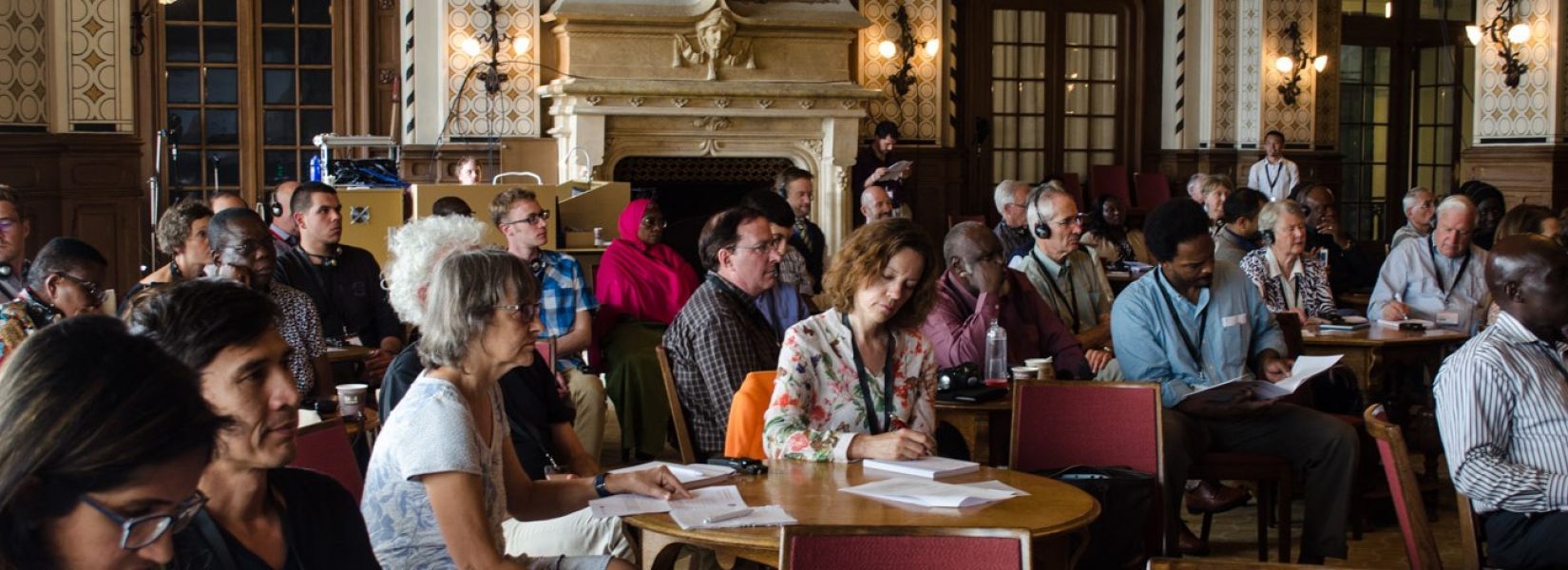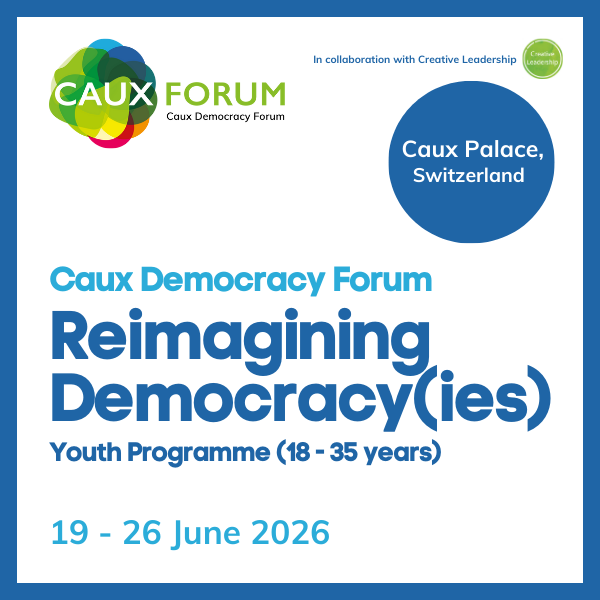Patrick Worms: Hard issues in a magical setting
10/04/2019Five years ago, Patrick Worms was sharing his passion for the power of agroforestry in development at the European Parliament. His friend, Hartmut Behrend from the German Bundeswehr, saw an unmissable opportunity, and insisted that Patrick come to Caux.
Intrigued by Hartmut’s praise of a fantastic conference set high among the clouds in a fairytale palace above Montreux, Patrick decided to go. He fell in love with the community of attendees, the place and the sense of mission. For him, as a biologist working for the World Agroforestry Centre, the Caux Dialogue on Land and Security (CDLS) was a natural fit. Its multidisciplinary approach reflected the broad focus that Patrick employs when considering the many different ways in which people’s interactions with their landscapes can affect everything from their livelihoods to the global climate.
Patrick says finding CDLS was like ‘coming home to a place I knew I belonged but had never been’. He was not new to the idea that land and security are interdependent. He had been involved in hard power and military issues, when he worked for the leaders of Georgia at the time of Russia’s invasion in 2008. Throughout his career he had felt that the worlds of greenery, development and hard security needed to be bridged. Experts in each field had to learn to work together to manage our crowded and much-abused planet.
Within two years of his first visit to Caux, Patrick was helping to organize the yearly dialogues. He is currently on the CDLS steering committee.
As Senior Science Policy Adviser for the Nairobi-based World Agroforestry Centre, Patrick handles policy and donor outreach in Europe. Key to his role has been his appreciation, heightened over the years through CDLS, that land and soil are security issues.
What has kept Patrick coming back to Caux? He says it is the way Caux deals with hard and complex problems, but in a mountain setting, removed from everyday pressures, with an ethos of calm reflection. CDLS brings together people from a wider variety of backgrounds than any other conference he has attended, facilitating productive discussions that would be unimaginable elsewhere. ‘The sheer variety of people at CDLS was a revelation’ he says. ‘Where else could you meet a NATO Assistant Secretary General, North Korean agroforesters and a hyperactive Tigrayan farmer?’
Caux’s service ethos also appeals to Patrick. ‘Working together physically to offer food to fellow delegates, rather than just talking, was… magical,’ he says. Caux is not a conference centre where people clock out at the end of the day: participants live there, sleeping, eating, talking, playing and serving each other. The CDLS has become an unmissable part of Patrick’s annual routine.
CDLS has given Patrick renewed inspiration and vigour in his work at the World Agroforestry Centre. His wife and daughter are also familiar faces at CDLS. He is now working with the CDLS team in an attempt to broaden its impact and influence and help it access more resources.
Initiatives for Land, Lives and Peace aims to deepen understanding of links between land degradation and human security and to build the trust needed for effective collaboration on the ground and in ‘land-peace partnerships’. As a programme of Initiatives of Change International, it inspires, equips and connects people to address world needs, starting with themselves.
Among other activities, each year ILLP organizes the Caux Dialogue on Land and Security (CDLS) in the Swiss village of Caux, in collaboration with Initiatives of Change Switzerland, the United Nations Convention to Combat Desertification (UNCCD) and the International Union for Conservation of Nature (IUCN).
The CDLS is much more than an annual Dialogue. It is located at the centre of a growing network of practitioners working on every aspect of human security and ecosystem restoration. They support each other, inform each other, and collaborate with each other.
































